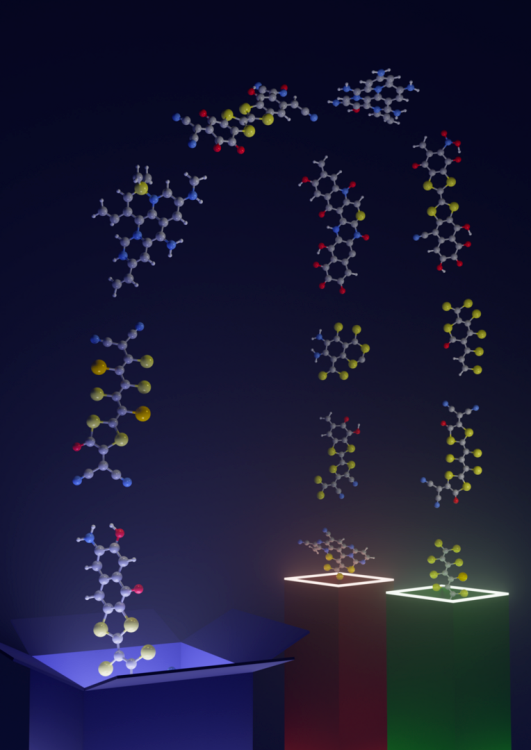
The image shows how molecules are created from a box. Based on artificial intelligence, these molecules can then be screened with other models, represented by the two adjacent boxes. This helps to identify molecules that have specific, desired properties. Image Credit: Joe Gilkes, University of Warwick.
The scientists integrated several artificial intelligence techniques into their experiments.
One model learned to predict quantum chemical properties of molecules, while the other learned how those molecules are constructed.
Julia Westermayr, Study First Author and Assistant Professor, Wilhelm Ostwald Institute of Physical and Theoretical Chemistry, Leipzig University
Dr. Westermayr adds that the first model is essential to allow a high degree of accuracy when screening properties, as traditional methods for evaluating quantum mechanical properties are highly laborious and need significant computational power.
In an iterative process that includes repeating steps until a few targets are reached or some criteria are fulfilled, the scientists further utilized both models to produce new molecules and then filter them for certain properties.
In each round, the design model learned how the best-suited molecules are constructed and thus specifically predicted molecules with optimized properties in the next round.
Julia Westermayr, Study First Author and Assistant Professor, Wilhelm Ostwald Institute of Physical and Theoretical Chemistry, Leipzig University
The foundation for the study was laid by Rhyan Barrett during an internship at the University of Warwick in England. This study was financially supported by the Artificial Intelligence and Augmented Intelligence for Automated Investigations for Scientific Discovery (AI4SD) network.
Molecules With Optimized Properties
We were particularly surprised that we were able to use artificial intelligence to find patterns in the data that led to optimized properties.
Rhyan Barrett, Department of Chemistry, University of Warwick
Eventually, the scientists managed to improve several properties. This makes it feasible to utilize the technique to determine Pareto-optimal solutions. A Pareto-optimal solution occurs when the solution of numerous improved properties has been found and the separate properties can only get better if one more property gets worse in the process.
The technique developed was utilized to design functional organic molecules applicable to optoelectronics. Such novel and highly efficient materials can be utilized in areas like the solar energy industry, display technology, data storage, LED lighting, sensor technology, and optical fibers in communications technology.
Furthermore, the new method could be moved to other fields. The other possible areas of application include the progress of active ingredients for new drugs with targeted and enhanced properties that are efficient against specific diseases.
Also, the molecular design could be utilized in environmental engineering to come up with new processes for purifying wastewater and air. In the field of biotechnology, new biocatalysts and enzymes are developed depending on the design of molecules with specific functions.
Journal Reference:
Westermayr, J., et al. (2023) High-throughput property-driven generative design of functional organic molecules. Nature Computational Science. doi.org/10.1038/s43588-022-00391-1.